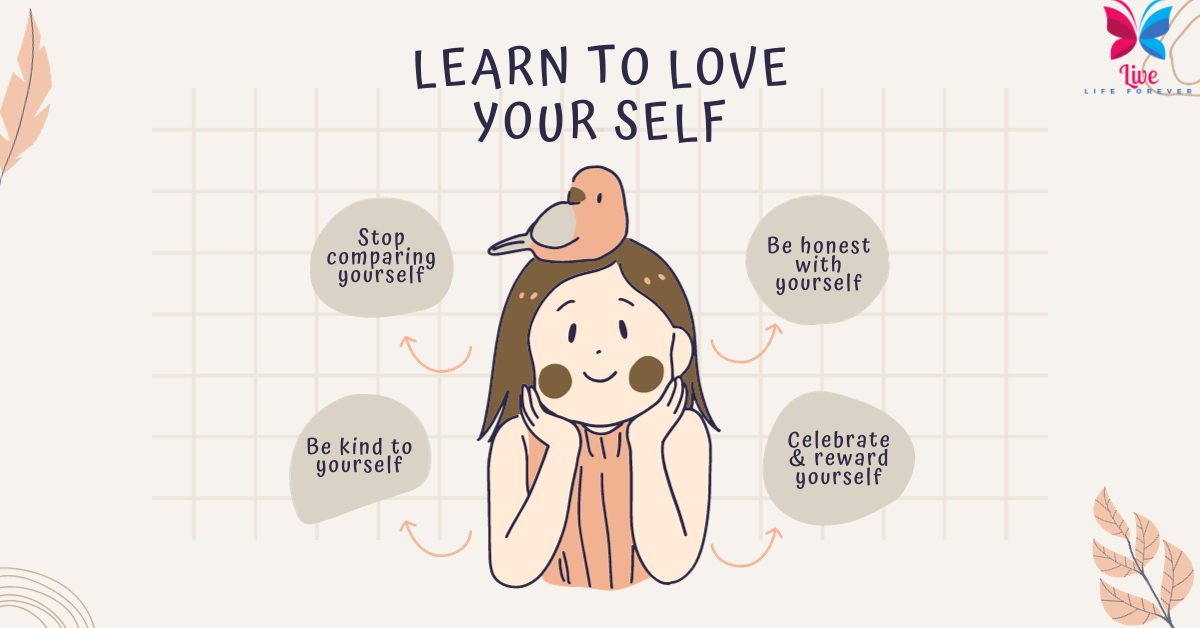New Thoughts


New Thoughts on Love
Love is a complex concept that is deeply ingrained in our society and culture. However, it is often defined solely based on feelings of desire and attachment. While desire and attachment can be aspects of love, defining love only through this narrow lens limits our understanding of this multifaceted concept. Taking a step back and challenging common assumptions about love allows us to gain new perspectives and insights.
One way to do this is by recognizing that desire and attachment are not inherently positive traits and do not always stem from noble motivations. Desire can be fleeting or superficial. Attachment can become toxic or codependent if not balanced with independence and respect for personal boundaries. A more fulfilling definition of love needs to move beyond subjective feelings to encompass recognition of inherent worth, care for another’s well-being, and demonstration of commitment through action.
Love as Recognition of Value
Rather than defining love solely as a feeling of desire or attachment, what if we view it as a recognition of value? When we appreciate beauty in art or music, we do not need to feel an emotional attachment to enjoy it. We simply recognize its quality. A similar perspective could apply to how we view other people.
Love in this sense would mean recognizing the inherent worth, dignity and value present in another person, similar to how we appreciate beauty in creativity or nature. This recognition helps us respect others regardless of how they make us feel emotionally. It does not depend on reciprocal feelings or actions from the other. We enjoy beauty in reality through acknowledging its existence, not as a result of possessiveness or desire for control.
This perspective shifts love from a self-centered emotion focused on getting needs met, to an other-centered act of valuing another’s being for its own sake. Recognizing value in this way can foster care, compassion and kindness even in the absence of strong feelings of attachment. It acknowledges our shared humanity beyond subjective likes and dislikes. This type of love does not require ongoing effort to sustain itself through reciprocal validation, making it less conditional and more stable long-term.
Love as Care Through Action
However, defining love solely as an internal emotion or thought process also feels incomplete. Love has an active, outward component beyond just affectionate feelings or high regards. A mother’s love for her children, for example, requires consistent care demonstrated through feeding, nurturing, protecting and supporting their growth and well-being over time.
This indicates love also necessitates action. Simply feeling favorable emotions or recognizing value in another is not the full picture of love if those perceptions do not translate to visible care demonstrated through effort, sacrifice and help provided to uplift the happiness and welfare of the beloved. Recognition of value and affection must inspire active compassion that lifts others up in practical, tangible ways.
Some key aspects of love as demonstrated through action could include:
- Consistently prioritizing the needs/feelings of the beloved by adjusting decisions/schedules to provide help and support when called for.
- Celebrating the successes and comforting through the difficulties experienced by the beloved by being present both physically and emotionally.
- Helping the beloved learn and grow as a person through open communication, challenging conversations when needed, accountability and serving as a role model.
- Making sacrifices of personal convenience, preferences or resources when necessary to ensure the well-being and flourishings of the beloved over the long-term.
- Extending care, protection and commitment consistently regardless of the reciprocation or “returns” received, with unconditional acceptance of the person for who they truly are.
In summary, love demonstrated through consistent, selfless action indicates care expressed in tangible efforts to uplift another’s quality of life and humanity. Feelings, new thoughts and expressions of affection alone are not enough to capture the full depth and meaning of love.
Components of Love In New Thoughts
Component Definition Examples
Desire A subjective feeling of wanting or craving something. Infatuation, physical attraction, longing for reciprocation of feelings.
Attachment An emotional bond or sense of connection to someone or something. Codependency, possesiveness, reluctance to be apart.
Recognition of Value Appreciating the inherent worth or quality in someone for their own sake. Admiring another’s character, talents or humanity with unbiased perspective.
Care Demonstrated action taken to support and uplift another’s welfare and well-being. Sacrificing personal conveniences, listening without judgment, caring for needs physically or emotionally.
The Multifaceted Nature of Love
As the table above summarizes, desire, attachment, recognition of value and care all represent different yet interrelated components of love. No single element encompasses love fully on its own. Viewing love through multiple complementary lenses allows for a richer, more nuanced understanding.
Perhaps rather than trying to redefine the term “love”, a better approach is to develop new language differentiating its distinct dimensions and manifestations. For example, we could specify:
Romantic love (desire, intimacy, partnership)
Filial love (familial bond, care for each other’s welfare)
Platonic love (non-sexual care, commitment to a friend’s well-being and growth)
Self love (recognizing one’s inherent worth, making health-affirming choices)
Universal love (appreciating shared humanity, wishing well-being for all people)
By distinguishing subtly varied types and aspects of love, definitions become clearer and more accurate. Individuals gain freedom to experience love’s multidimensional nature without feeling limited to rigid preconceptions. Relationships can be nurtured holistically by balancing emotional connection with responsibility, reciprocity and putting the other’s needs first through consistent action.
Surpassing Assumptions Through Wonder
Another way of cultivating novel perspectives and new thoughts is by letting go of attachment to rigid beliefs and replacing faith with wonder. Many ideas we grow up accepting as absolute truths are instead assumptions rather than facts. Approaching life’s mysterious with curiosity rather than stubborn conviction allows room for growth and new insights.
Wonder prompts questions instead of declarations of knowledge. It stimulates imagination and a drive to understand rather than dismiss unexplained phenomena. Wonder lives with uncertainty comfortably whereas faith demands black/white answers that often do not exist. A spirit of wonder nourishes flexibility, introspection and openness to relearning old lessons in new, enlightening ways.
This attitude transfers well to considering love. Approaching it with wonder rather than prescriptive assumptions recognizes love’s complexity beyond simplistic definitions. Wonder helps notice nuanced variations loving connections can take across diverse cultures and contexts. It fosters discussion to collectively broaden perspectives rather than rigidly clinging to preconceived notions of “right and wrong.”
With wonder replacing faith, outdated love concepts evolve. New understandings emerge to nourish healthier, more empowering relationships. Appreciating love’s orchestral richness, variations and subtleties enriches our shared human experience.

Cultivating Adaptability and Creativity
Another way of sparking new thoughts is through cultivating adaptability and creativity habits deliberately. Contrary to common assumptions, these skills can be systematically developed rather than representing fixed innate talents. Some techniques for nurturing innovative thinking include:
- Learning multiple perspectives by studying other cultures, disciplines, worldviews: This awareness stimulates new pattern connections.
- Challenging Default Assumptions: Make a habit of questioning taken-for-granted beliefs across domains to identify constrained thinking.
- Creative Problem-Solving: Approach issues from alternative angles by reframing the problem statement, constraints, potential outcomes.
- Mental Playfulness: Instead of always being serious, make time for humor, games, arts/hobbies to relax rigid thinking.
- Model Innovators: Study biographies or assignments of pioneering thinkers across fields to decode their techniques.
- Brainstorming Sessions: Don’t judge ideas initially – allow wild, even “bad” concepts to emerge and trigger further connections.
- Mental Mashups: Combine unrelated domains mentally to reproduce the effect of serendipitous connections.
- Incubation Periods: Let ideas marinate by changing cognitive contexts before analyzing or executing on them.
With consistent practice, creative/adaptable “muscles” develop alongside intelligence to become stronger faculties supporting new perspective formation. While innate talents vary, we all possess untapped potential when habitual creativity skills are cultivated systematically. This nourishes new paradigms, improving lives and society in areas ranging from relationships to businesses.
Conclusion
New thoughts about Love constitutes one of life’s most profound yet abstract concepts. Relying on rigid definitions or assumptions breeds narrow views unable to encompass love’s bountiful, dynamic nature. Taking intentional steps back to reframe preconceptions allows love’s richness to emerge in illuminating new light.
Approaching it with careful curiosity and wonder versus rigid theory opens our lens. Distinguishing its multifaceted characteristics and cultural expressions deepens understanding. Nurturing creativity establishes long-term perspective flexibility across life domains.
Love stretches and uplifts us most when recognized for its intricate complexity defying oversimplified boxes. May new appreciations nourish healthier connections and bring us closer to expressing love’s spirit in all its profound fullness within ourselves and relationships. With patience and openness, fresh insights into love and life continually await within openhanded perspectives.






Hello lifestylewithhina.com Administrator.
This is Maryann and I stumbled upon lifestylewithhina.com a few minutes ago.
Seems great… but now what?
By that I mean, when someone such as me discovers your website – either through Search or just bouncing around – what happens next? Do you get numerous of leads from your site, or at least enough to make you happy?
Truthfully, most business websites fall somewhat short when it comes to generating paying customers. Studies indicate that 70% of a site’s visitors disappear and are gone forever after just a moment.
Here’s an idea…
How about making it really EASY for every visitor who shows up to get a personal phone call from they hit your site…
You can –
Web Visitors Into Leads is a software widget that’s works on your site, ready to capture any visitor’s Name, Email address and Phone Number. It signals you the moment they tell you they’re interested – so that you can speak to that lead while they’re really looking over your site.
CLICK HERE https://bit.ly/3LPltcD to test a Live Demo with Web Visitors Into Leads now to see exactly how it works.
You’ll be surprised – the difference between contacting someone within 5 minutes versus a half-hour or more later could enhance your results 100-fold.
It gets even better… once you’ve captured their phone number, with our new SMS Text With Lead feature, you can automatically start a text (SMS) conversation.
That way, even if you don’t close a deal right away, you can follow-up with text messages for new offers, content links, even just “how you doing?” notes to establish a relationship.
Quite sweet – AND effective.
CLICK HERE https://bit.ly/3LPltcD to find out what Lead Conversion can do for your business.
You could be converting up to 100X more leads today!
Maryann
PS: Lead Conversion offers a FREE 14 days trial – and it even includes International Long Distance Calling.
You have customers waiting with you right now… don’t keep them waiting.
CLICK HERE https://bit.ly/3LPltcD to use Web Visitors Into Leads now.
If you’d like to unsubscribe click here https://bit.ly/3rD0G5c
Just a swift remark – the monikers and email address used in this note, Maryann and Edmund, are substitutes and not actual contact details. We esteem candor and aimed to ensure you are aware of this! If ever you wish to get in touch with the real entity responsible for this communication, do go to our site, and we’ll connect you with the correct individual.